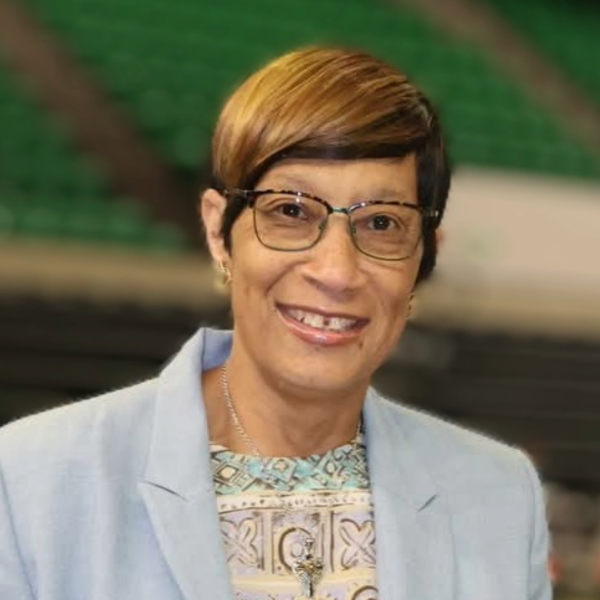High-pressure professions not only demand technical skill, composure, and moral clarity, but they also test one’s values and resilience. For Chief Annetta Nunn, Birmingham’s first African American woman Chief of Police, those same pressures became the foundation for a leadership philosophy rooted in courage, self-awareness, and service.
On Thursday, Oct. 24, from 12–1 p.m. via Zoom, the Heersink School of Medicine Office of Access & Engagement invites faculty, students, and trainees to attend “Opportunities and Challenges to Success,” presented by Chief Nunn as part of the American Medical Women’s Association lecture series.
 Chief Annetta W. Nunn
Chief Annetta W. Nunn
Leading through challenges
Chief Nunn decided to pursue policing at 14 after witnessing officers’ behavior in her neighborhood and realizing she wanted to be part of the solution. Over nearly three decades of service, she advanced through every level of the Birmingham Police Department before being appointed Chief in 2003.
From the start, she learned that leadership requires courage and consistency, especially when navigating uncertainty.
“You have to have the courage to be committed to your values in spite of your environment,” she says.
When Nunn became chief, she stepped into the role amid citywide budget cuts. There was no honeymoon period, she recalled. Instead of scaling back, however, she found creative ways to move forward.
One major operation under her leadership recovered nearly a million dollars in seized assets, helping the department secure matching funds for a $5 million grant. This is just one example of how Nunn leveraged her team and her persistence to turn a challenge into an opportunity.
From her experiences, Nunn has identified several principles that have helped her sustain effective leadership. Some of those principles include:
- Building a firm foundation early. Education and preparation create lasting stability.
- Setting goals that benefit others as well as yourself. Growth should strengthen both the individual and the community.
- Creating a network of mentors and allies. “You can learn something from everybody,” she said. “You just have to be open to it.”
- Prioritizing well-being. As she often reminds others, caring for yourself positions you to better care for those you serve.
For Nunn, faith has been another major source of strength, especially in moments where leadership required standing firm in her principles, even without unanimous support. That conviction, she says, is what allows her to stay grounded and lead with integrity, no matter the environment.
“I can do all things through Christ who strengthens me,” she said. “That’s what got me through [tough situations], because sometimes you’re the only one standing.”
Nunn’s service beyond the badge
Nunn’s dedication to service did not end with her retirement from law enforcement in 2008. After seeing the effects of domestic violence firsthand, she devoted the next phase of her career to prevention and outreach, serving with the Young Women’s Christian Association and One Place Family Justice Center. There, she led community programs focused on prevention and survivor support.
Her ongoing volunteer work reflects the same leadership qualities that guided her police career: commitment, empathy, and perseverance. For those in medicine, her perspective resonates deeply. Long hours, complex systems, and emotional intensity all test one’s sense of purpose. Chief Nunn’s story is a reminder that success and service are sustained through reflection, discipline, and care for oneself and others.
To hear more about Chief Nunn’s journey and practical lessons on leading through challenge, attend her lecture, “Opportunities and Challenges to Success,” on Thursday, Oct. 24, from 12–1 p.m. via Zoom. The event is free and open to all Heersink faculty, students, and trainees.